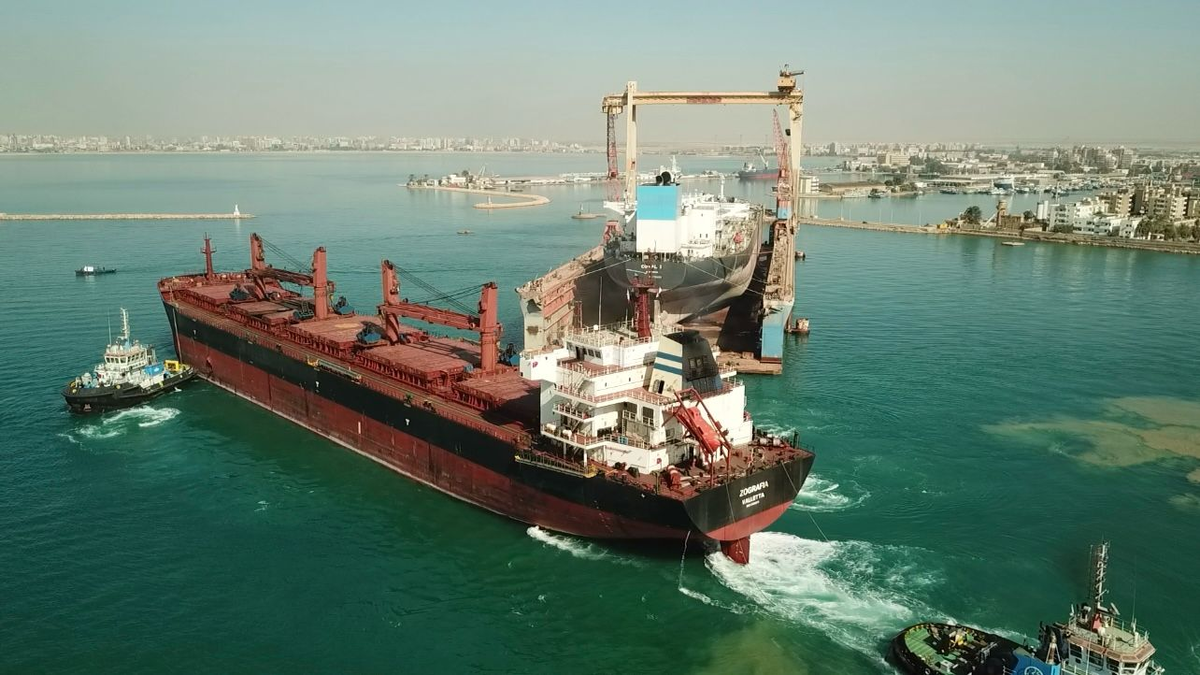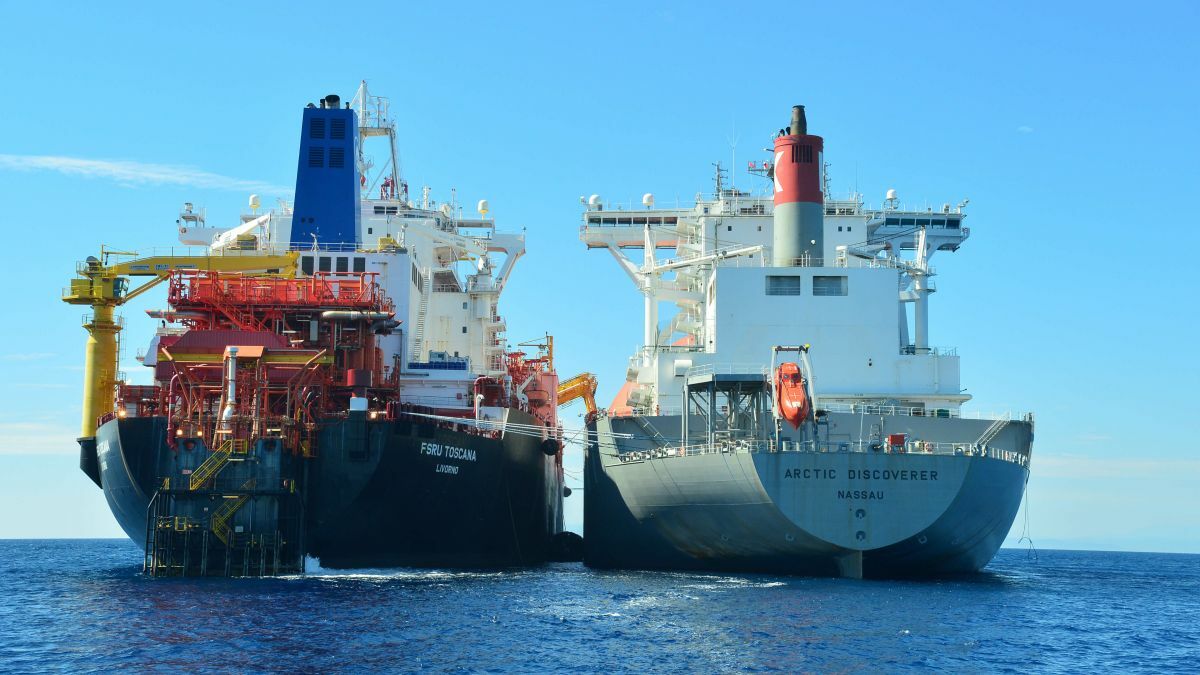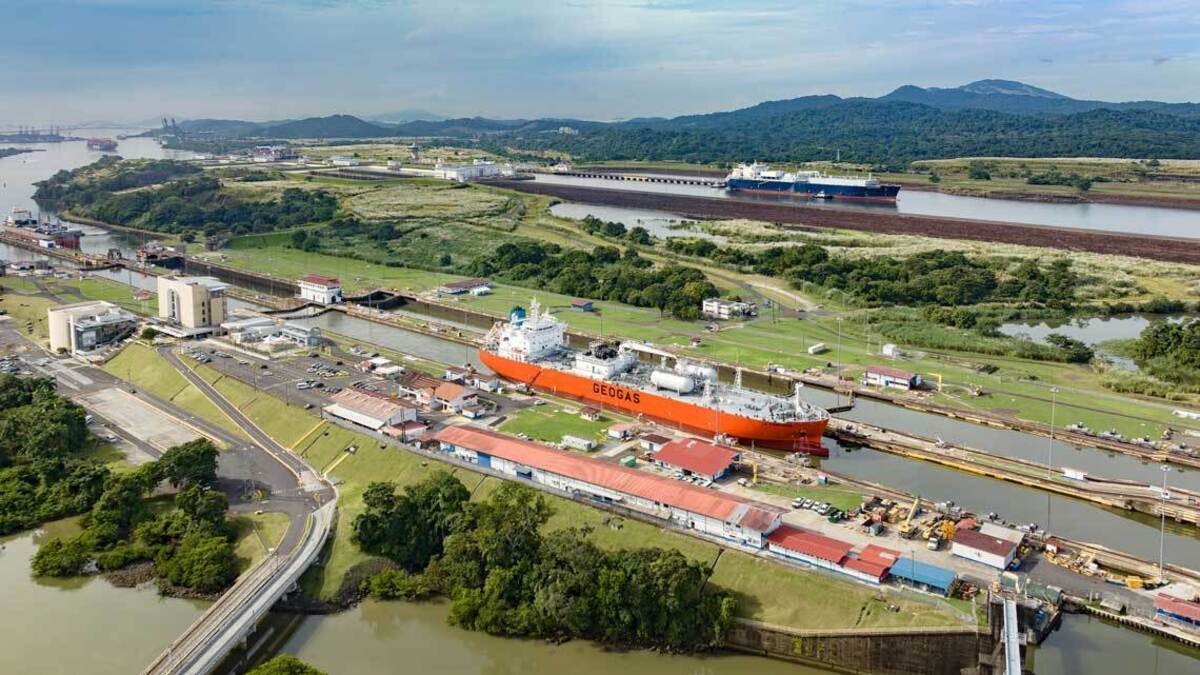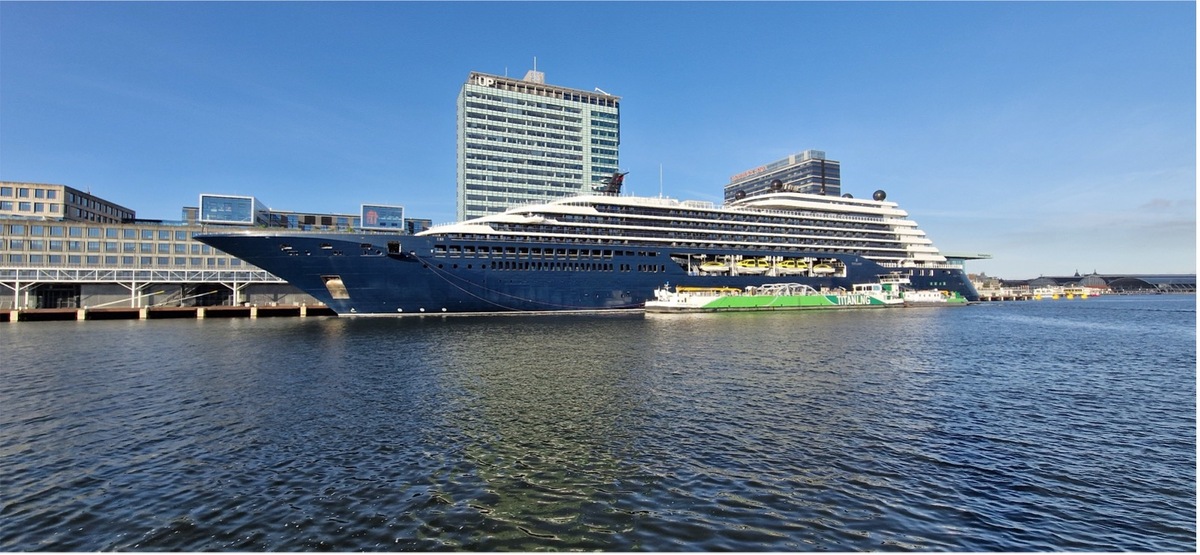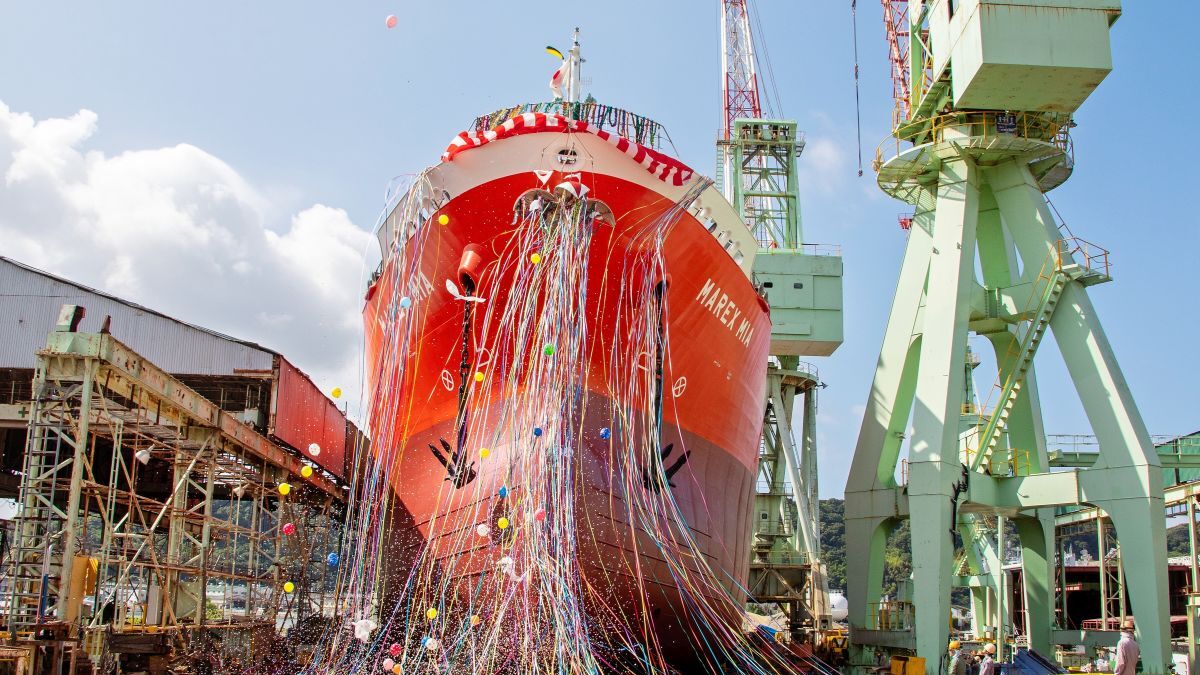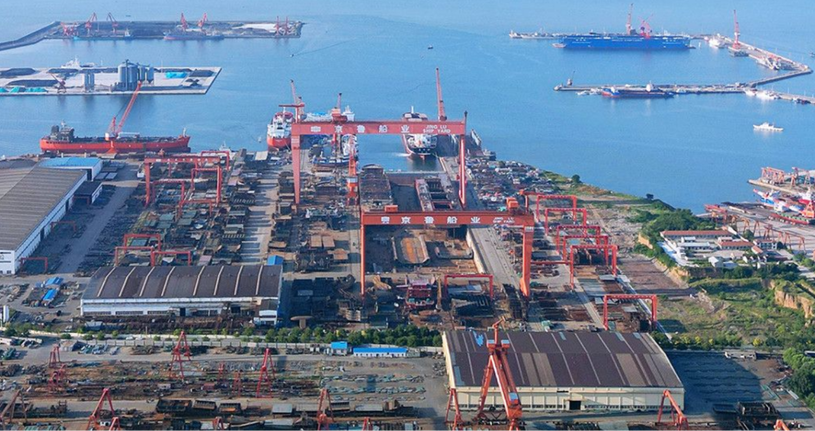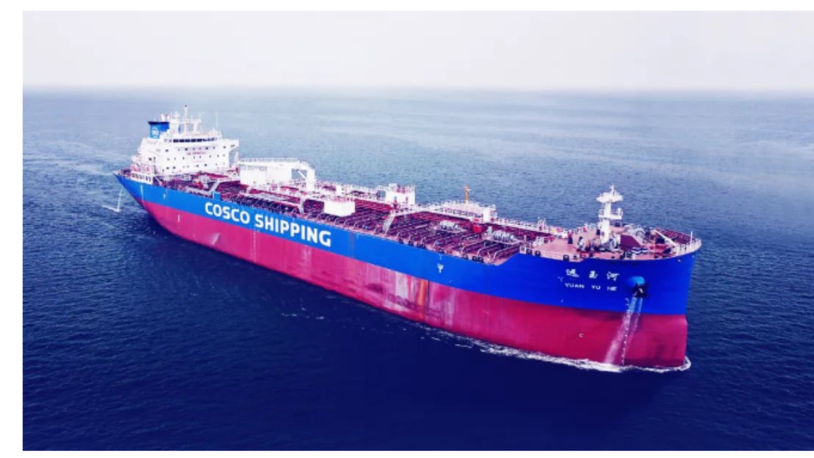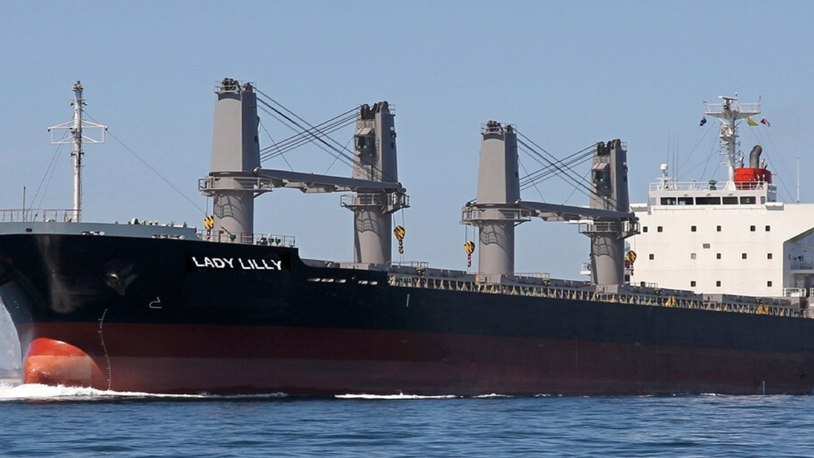Business Sectors
Contents
Register to read more articles.
Suez feels the pinch from continued Houthi attacks on shipping
Drone and missile attacks by Houthi rebels have prompted shipping diversions, causing a 40% drop in Suez Canal toll fees taken since November 2023
Data compiled by Veson Nautical analyst Rebecca Galanopoulos-Jones has shown what the researcher called a "notable shift in traffic patterns" for maritime vessels.
The targeting of maritime vessels by Yemen’s Iran-supplied Houthi rebels is entering its third month and has reached 50 reported attacks, despite efforts by a coalition of nations led by the US and UK to deter or disable Houthi military through strikes and sanctions. Most recently, the US Justice Department levied sanctions and indictments against Iran’s Islamic Revolutionary Guard Corps leaders and other individuals, seized more than US$108M and more than 500,000 barrels of sanctioned fuel.
Despite the efforts, attacks continue. On 6 February, Houthi forces targeted a Greek-owned bulk carrier and a UK-owned general cargo vessel, according to US military Central Command (US CENTCOM).
"Iranian-backed Houthi militants fired six anti-ship ballistic missiles (ASBM) from Houthi-controlled areas of Yemen toward the Southern Red Sea and the Gulf of Aden," US CENTCOM reported.
Three of the ASBMs were confirmed by the Houthis to be targeting Star Nasia, a Marshall Island-flagged, Greek owned-and-operated bulk carrier transiting the Gulf of Aden.
"At approximately 03:20 am [local time], Star Nasia reported an explosion near the ship causing minor damage but no injuries. At [14:00] another missile impacted the water near the ship with no effect. At [16:30], USS Laboon, operating near Star Nasia, intercepted and shot down a third anti-ship ballistic missile fired by the Iranian-backed Houthis," the US military group said, noting that Star Nasia remained seaworthy and is continuing toward its destination.
The remaining three ASBMs were targeting Morning Tide, a Barbados-flagged, UK-owned cargo ship operating in the southern Red Sea.
"The three missiles impacted the water near the ship without effect," US CENTCOM said. "Morning Tide is continuing its journey and is reporting no injuries or damage."
The two months of ongoing attacks, Ms Galanopoulos-Jones said, have prompted "significant rerouteing of vessels" and threaten continued economic losses for the Egyptian government.
Looking at losses in Suez Canal toll fees for tankers, bulkers, gas carriers and container ships over the last 12 months, the report showed that overall Suez Canal tolls have fallen by roughly 40% since the end of November 2023, dropping from US$47M to US$28M.
The Suez Canal Authority’s (SCA) total financial hit has been linked most to box ships, with container vessel tolls down by around two-thirds, from US$18M to US$6M through the end of January 2024. In percentage terms, the drop was similar for LNG carriers, though LPG gas carriers saw tolls down by 93%, due to a lower total volume of transits.
In the tanker and bulker sectors, losses were lower, with tanker tolls dropping by 23% and bulker contributions only down by 7%, despite numerous attacks on the latter vessel type.
Ms Galanopoulos-Jones said that reduced traffic through the Suez Canal and a lower income from toll fees for Egypt is likely to persist for the foreseeable future.
The warning signs of the ability of Houthis to launch drone and missile attacks on international shipping have been in place for some time. In June 2023, the US Treasury’s Office of Foreign Assets Control (OFAC) issued a factsheet warning of Iran’s unmanned aerial vehicle (UAV) activities. “Iran’s development, procurement, and proliferation of UAVs destabilises the Middle East region,” it warned, noting that Iran had been sending illicit shipments of UAVs and other weapons to the Houthis.
“Vessels have now incorporated the phrase ’not Israel’ into the AIS broadcast”
Nearly all vessels in the region have now incorporated the phrase “not Israel” or a variation of this into the AIS broadcast, but other vessels are diverting away from entering the Red Sea and foregoing passage through the Suez Canal. The London Stock Exchange Group (LSEG) reported that diverting around Africa’s Cape of Good Hope doubles costs and transit time for Aframax tankers and adds US$932,905 per voyage while increasing transit time from 16 days to 32 days.
Added costs are attributed to extra fuel. According to the report, the diversion on the route increases costs for an Aframax tanker by 110% and 35% for a large container ship.
LSEG research also showed traffic through the Red Sea and Suez Canal has seen a steady decline since Houthi forces began firing at merchant vessels in the region.
"Average monthly transits through the Suez from June to November 2023 were seen at 1,914. This dropped to 1,672 in December, a 12.6% drop in transits, and January month-to-date transits are assessed at 947 as of 22 January, which translates to a 32.6% decline," according to LSEG.
This nearly one-third decline in transits in January 2024 will, of course, result in displacement of the broader fleet, as Scorpio Tankers president and director, Robert Bugbee, noted. He said the impact of the attacks and the diversion away from the Suez Canal is not directly felt on freight rates at the start of the event, as tanker rates are already fixed and freight agreed. The impact comes afterwards, he said.
Speaking at his company’s Capital Link presentation in January 2024, Mr Bugbee said, “We are starting to see that [disruption] now with the forward position list: that is the number of ships available to come back into a position.”
Owners will assess the risk, and some will not offer vessels to load in the region where there is a risk of attack. However, cargoes still need to be moved, and the shrinking available fleet will then drive up the freight rates.
One very vulnerable tanker operator is the New York-based International Seaways, which operates 77 tankers ranging from Handysize tankers through to VLCCs. As a New York Stock Exchange-listed company, a Houthi attack on one of its vessels would generate considerable publicity and a rapid response. Speaking at the company Capital Link presentation in January 2024, the company’s president and chief executive, Lois K Zabrocky, responded to a question on how the company was handling the Red Sea situation.
“We are working hourly with our technical team, security services, and Central Command,” she said. “We put our seafarers foremost of mind and there have been decisions to go around the Cape of Good Hope, which adds 10 to 15 days per voyage.”
The former seafarer added, “We will continue to assess and decide on a daily basis based on safety and security. We work with really strong partners in the oil companies that also have very strong core values and we make the decisions that are appropriate for our seafarers and our ships.”
Is there a resolution to the Red Sea situation? The United Nations Security Council passed its own security resolution condemning “in the strongest terms” the multiple attacks by Houthi rebels off the coast of Yemen which have disrupted global trade and raised fears of further spillover from the war in Gaza.
“Traffic through the Red Sea and Suez Canal has seen a steady decline since Houthi forces began firing at merchant vessels”
The text commends efforts taken so far to protect shipping under fire in the Red Sea and encourages UN member states to “support capacity-building efforts” of the Yemeni coastguard to protect the sovereignty and integrity of the country. The UN statement also emphasises the need to “address the root causes” of the attacks.
The Houthis have declared that attacks on all international shipping companies and vessels will continue until Israel allows full humanitarian supplies to enter Gaza. However, most observers agree that will not happen until Israel is satisfied it has eliminated, as far as possible, any danger from Hamas within its borders.
With US Secretary of State Antony Blinken in Israel on a diplomatic mission, Israeli Prime Minister Benjamin Netanyahu rejected a ceasefire proposal from Hamas, saying Israel would fight until it achieved "total victory".
The Hamas plan came through Egyptian and Qatari mediators and was in response to a proposal developed by the US, Israel, Egypt and Qatar.
With talks yet to produce movement towards a ceasefire, it appears that shipowners will continue to assess safety for Red Sea transits and tonne-miles will remain high as significant numbers of vessels avoid the Red Sea region.
Riviera Maritime Media’s International Tanker Shipping & Trade Conference, Awards & Exhibition will be back 10 September 2024. Click here to register your interest in this industry-leading event.
Our International Chemical & Product Tanker Conference will be held in London on 23-24 April 2024. Click here to view the programme of this industry-leading event.
Related to this Story
Events
Offshore Support Journal Conference, Americas 2025
LNG Shipping & Terminals Conference 2025
Vessel Optimisation Webinar Week
© 2024 Riviera Maritime Media Ltd.


